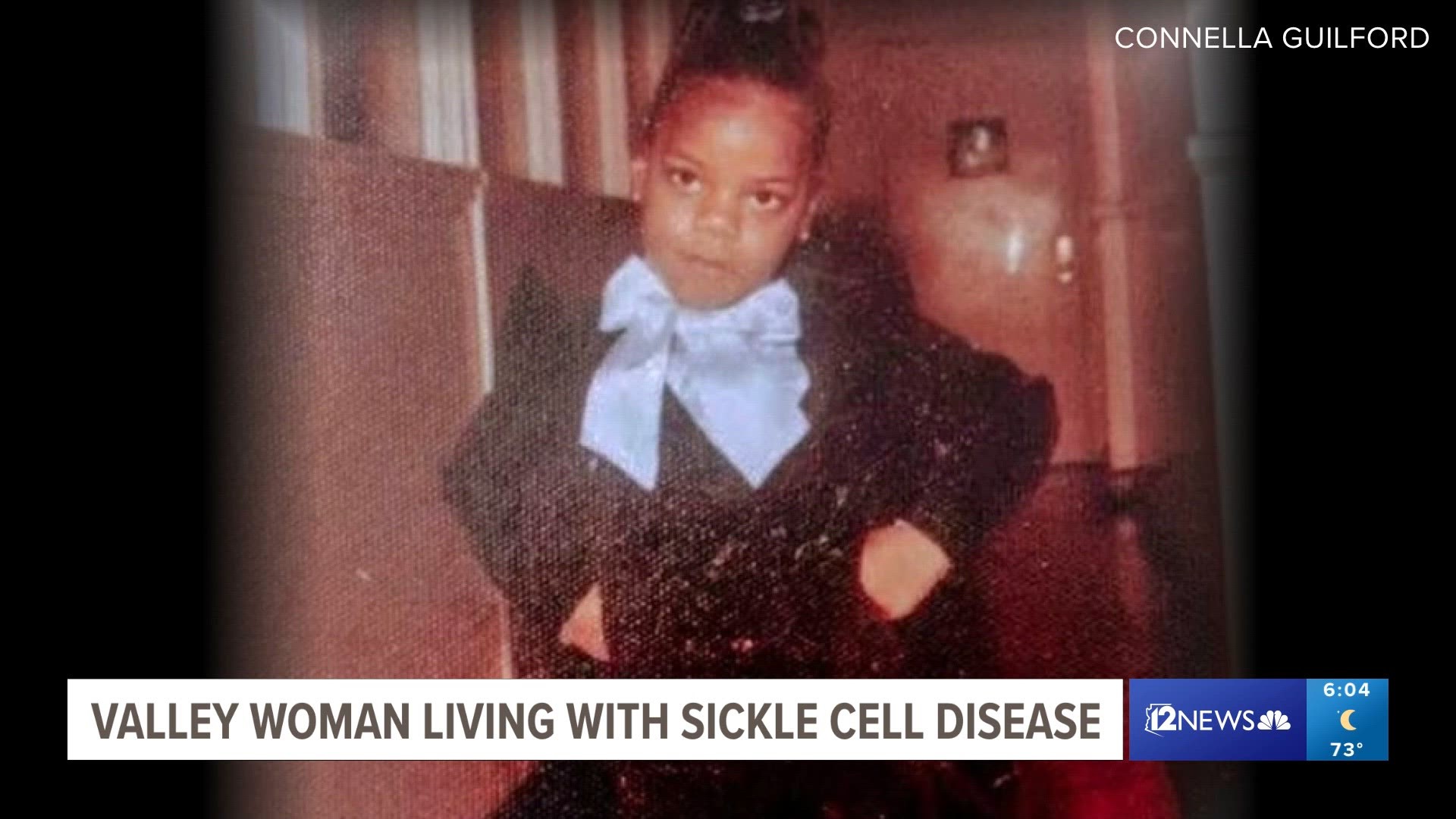GILBERT, Ariz. — In honor of Black History Month, the Red Cross is asking for blood donations across the country, particularly from Black Americans, to help treat those living with sickle cell disease.
12News is sharing the story of one woman in Gilbert who is living with the disease and beating the odds.
Connella Guilford was diagnosed with a painful genetic blood disorder as a child. Both of Guilford’s parents had the trait.
“One morning, I was in fourth grade, and I woke up and I couldn’t walk,” said Guilford.
Sickle cell disease disproportionately impacts Black Americans, but the Red Cross said one in three Black donors will be a match for a person living with it.
“Your white blood cells take over your red blood cells, and when it’s not getting enough oxygen, it turns into like a Pac-Man, and it takes a bite out of the red blood cell,” said Guilford.
According to the CDC, the disease affects African Americans at much higher rates than people of other ethnicities.
The disease typically includes health complications, severe pain, infections and even strokes.
“It’s called sickle cell because it’s a ‘c’ shape,” said Guilford. “It is like excruciating pain.”
As a little girl, doctors gave Guilford's family devastating news about the effect the disease would have on her life.
“That I wouldn’t live past 18,” she said. “If I did, I wouldn’t be able to have children.”
But amazingly, at 51 years old, is Guilford beating those odds.
“I have three adult children, who do not have the disease,” said Guilford. “They all have the trait and I have a granddaughter, she’s 14, who also has the trait.”
Sickle cell is a lifelong disease, and triggers like stress, dehydration and cold weather cause the symptoms to arise.
“It feels like, for me, that you’re being stabbed in the front and the back, this pain is so severe that narcotics are required,” she said.
“It’s very miserable when it’s happening,” said Dr. Danielle Nance at Banner Gateway, who Guilford connected with when she moved to Arizona a few years ago.
Dr. Nance explained why her symptoms were getting worse.
“We’re over 2,000 feet above sea level, so that makes a little bit less oxygen in the air,” said Dr. Nance. “Also, our air is super, super dry all year long.”
Dr. Nance suggested easy, affordable ways for Guilford to mitigate her symptoms, to avoid another long hospital visit.
“Drink electrolyte solutions daily,' Dr. Nance said. "Get a humidifier in their home at night.”
“She has been amazing,” said Guilford who also does a weekly hydration IV. “I great, I feel amazing.”
“Connella is a very vivacious woman,” said Dr. Nance. “She is committed to not only helping herself, but to help other people with the condition.”
Guilford now feels more empowered than ever to raise awareness around sickle cell, and she’s even starting a podcast to let sickle cell patients in Arizona know they’re not alone.
“Take care of yourself,” Guilford said. “You only have one life, and you are your best advocate.”
More information
If you or someone you know is looking for sickle cell resources click here. Additional information can be found here.
If you would like to commemorate Black History Month by rolling up a sleeve to give blood, use the Red Cross Blood Donor App, visit RedCrossBlood.org/OurBlood or call 1-800-RED CROSS (1-800-733-2767) to schedule an appointment.
Up to Speed
Catch up on the latest news and stories on the 12News YouTube channel. Subscribe today.

